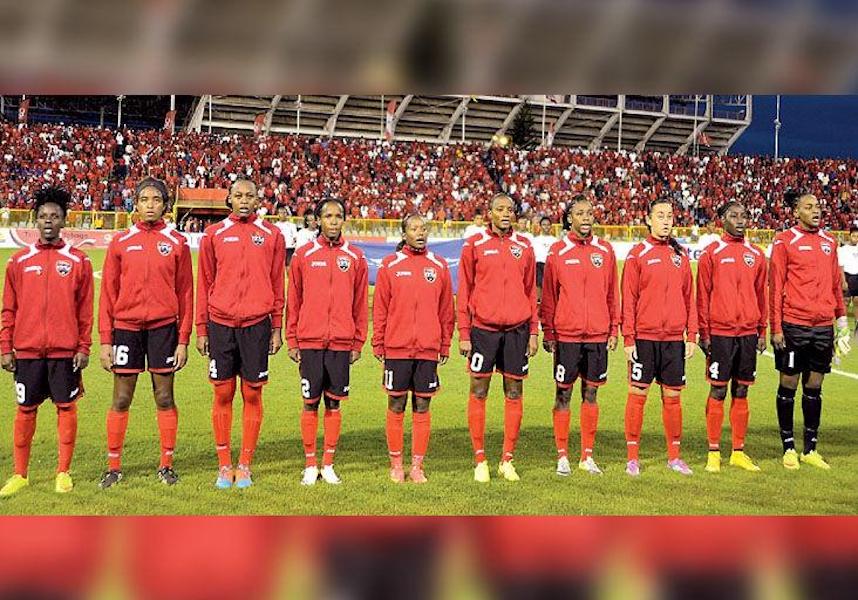So let’s say come next Sunday’s emergency meeting the vote, as is expected, goes overwhelmingly against William Wallace and his executive.
Let’s say they resign en masse in response, then next Monday morning Robert Hadad gets an email from general secretary Fatma Samoura reinstating the normalisation committee, returning him as the interim head of the game here, welcoming the Trinidad and Tobago Football Association as a member of the global football family once more, which means the money starts flowing again from Zurich.
And just to ensure such an excommunication never happens again, the members of the shameless, disgraceful organisation known as the PNM and the unelectably corrupt, arrogant institution that is the UNC come together to amend the relevant legislation so that in future, when it comes to football, we remain forever subservient to the will of FIFA but apparently more importantly, part of the global game.
After all that, what? Football in this country will be on a progressive track thereafter? And I suppose you believe in Santa Claus too, or that there is no police and soldier cover-up in the Drugs Sou Sou.
To be clear, if it were to transpire that — miracle of miracles — the Wallace executive gets a vote of confidence to continue the legal wrangle with FIFA, then it will just be a different version of the same bacchanal, because unauthorised alterations to contracts for coach Terry Fenwick and general secretary Ramesh Ramdhan, along with the re-floating of the ubiquitous marketing man Peter Miller, together with one or two other questionable deals mean Wallace on his own may struggle to survive this latest episode of turbulence in the nation’s most popular sport.
There is ample evidence across more than four decades (and no doubt even further back for those with the knowledge and memories to recall) to confirm that football governance here is an accurate reflection of the greed, corruption and, at best, misdirected priorities which define life in this twin-island republic.
So warped in our thinking are we that even historic experiences of unprecedented national unity and fervour under the umbrella of the beautiful game — from the 1989 “Road to Italy” campaign to the Germany 2006 experience to a full house at the Hasely Crawford Stadium in December 2014 supporting the women’s bid for World Cup glory — disintegrate into bitterness and acrimony in the obscene scramble for money and influence.
Sorry, it’s obscene for countries with a culture of transparency and accountability. Here, crabs in a barrel behaviour is normal, normal. Maybe it’s wrong to just give up, to believe that our experiences will forever be a recycling of the consequences of an absence of integrity with only dates and names changed. But where is the hope, or more precisely, what is the hope based on?
This disconcerting disconnection from reality extends across the region. Just last Tuesday I was involved in a discussion on West Indies cricket on commentator Andrew Mason’s radio show in his native Barbados, focussing on the squad to be selected and the team’s chances on the tour of New Zealand.
Just listening to the tenor of the dialogue you would think that the generally routine act of naming 15 players for the campaign was the start of a new era in the Caribbean game, as if picking so-and-so player or players will magically repair 25 years of struggle in Tests. One contributor even prefaced his opening statement by suggesting gone are the days when the West Indies went to New Zealand and regularly trounced their opponents 4-0 or 5-0, which is as disconnected from reality as you can get because that has never happened even once.
Look, I get that this all sounds very negative (and I am by nature a pessimist) but if someone can point to something real – something beyond “hoping” and “thinking positive” – upon which to base optimism then I would be happy to listen.
Maybe it’s a combination of advancing years and experiencing the same blimming thing over and over and over again, but impatience at seemingly perpetual outrage after outrage is intensifying. Outrage like racism, outrage like sanitising cheating, which have contributed to a decision to ease away from supporting Liverpool after 43 years and to make last Saturday’s 2-2 draw at Everton as the final English Premier League game I will actually sit down to watch in its entirety.
Space is running out today but suffice it to say that, in the context of the greater awareness brought on by the “Black Lives Matter” movement, Liverpool Football Club’s history of racism when combined with contemporary and broader football issues like players faking injuries and fouls, and the intrusion of VAR technology, make Liverpool and the EPL only worthy of occasional interest now.
Sport should be about joy, not constant controversy.
SOURCE: T&T Express

